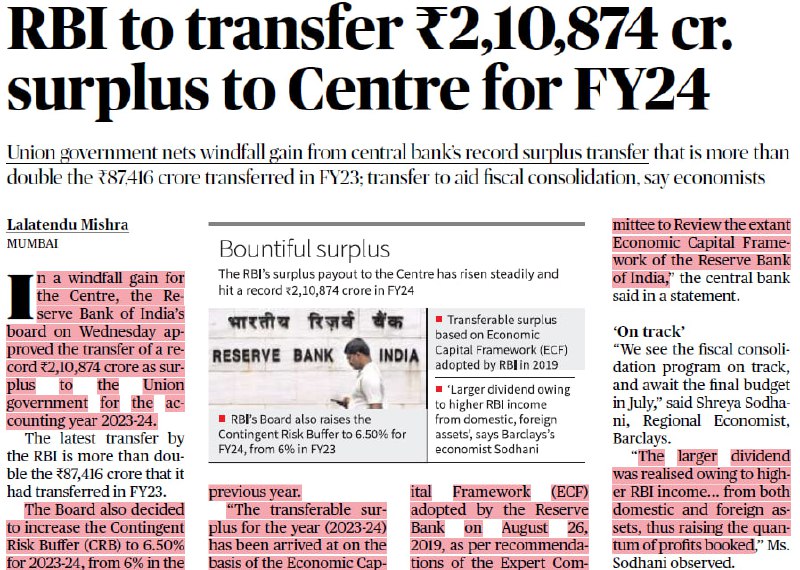2021-04-09 08:31:29
The above is an article from Hindu editorial page. I do not agree with all the points. You can look at the below points:
1) I agree that agriculture cannot be totally left to the market and Govt. presence is required to a certain extent.
2) He says that demand for food crops is price inelastic which means that even if price changes the demand does not change. So, in case of bumper crop production when prices fall then there is not enough increase in demand to lift the prices up.
But in case of drought, the prices move up and poor consumers/rural people are starved.
My suggestion is Govt. should keep a buffer stock of foodgrains (which it does) and distribute it to the poor in case of any crisis like it did in Covid times. But for every normal year, Govt. may not distribute through PDS rather it can provide DBT. So, every year Govt. procurement of food crops will not be required. The Govt. just need to stock the foodgrains for any bad year.
3) The author is saying that "
we need to greatly expand the basket of public procurement to include more crops, more regions and more farmers". Rather than
expansion of public procurement I would say that Govt. should
shift to other crops (millets) and may shift to other areas which has remained poor like odisha, jharkhand, eastern UP. And Govt. should stop subsidizing wheat, rice and sugarcane as it has totally disturbed the whole agri ecosystem. Rather govt. should free up the fertilizer prices and give subsidy in DBT form which will motivate farmers to grow other crops.
4) In 1965 when FCI was established it may be possible that the idea was to procure the surplus foodgrains at MSP but as of today this idea is not working. Today we need a diversification in crops which can be done by freeing up the agricultural markets and letting the farmers produce as per the demand and giving them cash directly into their account. This has many advantages: firstly it will resolve the problem of water wastage, secondly, farmers will diversify crops which will have a salutory/healthy impact on soil and environment, thirdly the wastage in Govt. procurement will get resolved, fourthly the Govt. subsidy burden will get reduced and fifth it will be more inclusive in terms that it will benefit more the poor farmers as compared to the present system of benefitting the rich farmers/traders.
5) Govt. can take effort in providing rural infrastructure, roads, electricity, development of mandi infrastructure, establishment of FPOs, testing labs, soil health cards, better seeds through research and development etc.
6.0K viewsedited 05:31


